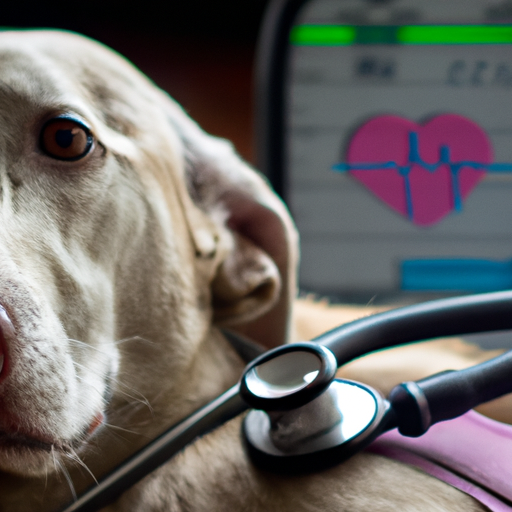As a caregiver, your dog’s health is a top priority. You’re always watching for signs of discomfort or illness, and you want to ensure that your furry friend is in the best possible shape. One important aspect of canine health that’s often overlooked is the dog’s heart rate. Below, we’ll discuss everything you need to know about your dog’s heartbeat.
Understanding Heart Rates in General
When it comes to heart rates, every species is unique. Your heart beats at a different pace than your dog’s heart.
- Humans: Our hearts typically beat between 60 and 100 times per minute at rest.
- Dogs: Dogs have a wider range, with a resting heart rate between 60 and 140 beats per minute.
The size of the dog also affects the heart rate. Smaller dogs and puppies typically have a faster heart rate than larger dogs or older dogs.
How to Measure a Dog’s Heartbeat
Measuring your dog’s heartbeat is a simple process that you can do at home. Here’s a step-by-step guide:
- Place your hand on your dog’s lower rib cage – right behind the front legs.
- Feel for the heartbeat.
- Use a stopwatch to count the number of beats in 15 seconds.
- Multiply that number by 4 to get the number of beats per minute.
Remember, if you’re ever in doubt or not comfortable taking your dog’s pulse, your vet can always help out!
Normal Heart Rate Ranges for Dogs
Dogs’ heart rates vary based on their size and age. Here’s a basic table for reference:
| Size of Dog | Normal Heart Rate (beats per minute) |
|---|---|
| Small dog (up to 30 lbs) | 90-120 |
| Medium dog (30-60 lbs) | 70-110 |
| Large dog (over 60 lbs) | 60-90 |
When to Consult a Vet
If your dog’s heart rate is outside the normal range, or if you notice any additional signs of distress like excessive panting, loss of appetite, or lethargy, consult your vet immediately. These could be signs of heart disease or other serious conditions.
Keeping Your Dog’s Heart Healthy
Just like humans, dogs benefit from regular exercise and a balanced diet. Regular check-ups with your vet are also essential for catching potential health issues early.
FAQ
Q: Can stress or excitement affect my dog’s heart rate?
A: Yes, stress or excitement can temporarily increase your dog’s heart rate.
Q: What if I can’t feel my dog’s heartbeat?
A: If you can’t feel your dog’s heartbeat, try moving your hand around a bit. If you’re still having trouble, consult your vet.
Q: My dog’s heart rate is slightly higher than normal. Should I be worried?
A: If your dog’s heart rate is slightly higher but they’re not showing any signs of distress, they might just be excited or stressed. If it remains consistently high, consult your vet.
Q: How often should I check my dog’s heart rate?
A: There’s no set rule, but it’s a good idea to check it every few months or so, or if you notice any unusual behavior.



